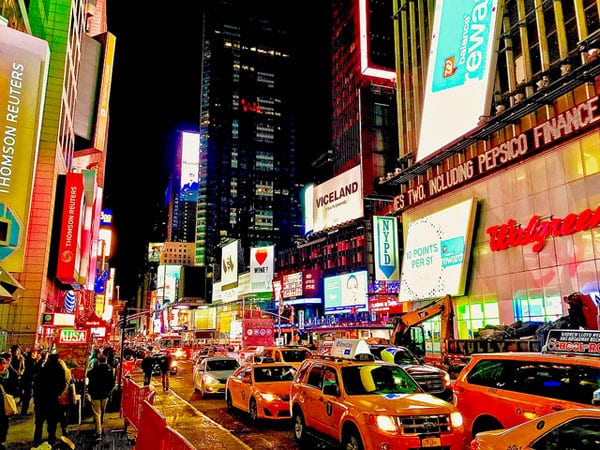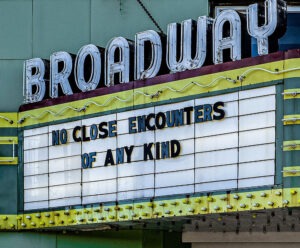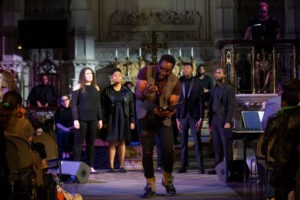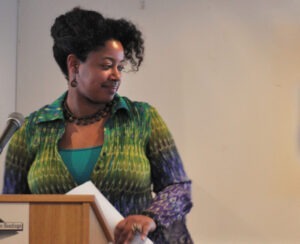
June 10, 2018; Los Angeles Times
While applauding best musical of the year The Band’s Visit and acknowledging the “endlessly imaginative staging” of best play Harry Potter and the Cursed Child, Parts One and Two, Los Angeles Times theater critic Charles McNulty raised important questions about the present—and future—state of Broadway. Following Sunday’s Tony Awards, McNulty concluded that, “Revivals redeemed a lackluster Broadway year,” and cautioned theatergoers and the industry to be mindful of undercurrents that may be eroding artistic growth in favor of a blockbuster mentality and limiting access to theater experiences to those who can afford pricey tickets.
McNulty had only praise for the cast and production of The Band’s Visit, which collected ten Tony awards. However, he observed that the competition was not all that inspired:
No critic I know is bemoaning the extensive menu of Broadway options available to youngsters from affluent families. But the paucity of adult shows of serious artistic merit to compete against The Band’s Visit is made clear by the other best musical nominees: Frozen, Mean Girls, and SpongeBob SquarePants.
Harry Potter and the Cursed Child won a total of six awards and was described by McNulty as “easier to defend as a galvanizing dramatic event than as a model of play writing.” Aside from these two new works, most of the other awards went to revivals; and while McNulty describes the 2017–18 season as one of “superlative, risk-taking remounts of 20th-century classics,” he also sounds an alarm bell about how difficult it has become to bring intellectually challenging new works to the stage and how much the Broadway business model has come to rely on “astronomically rising ticket prices.”
Sign up for our free newsletters
Subscribe to NPQ's newsletters to have our top stories delivered directly to your inbox.
By signing up, you agree to our privacy policy and terms of use, and to receive messages from NPQ and our partners.
The Broadway League end-of-season statistics showed that this season grossed $1.7 billion—a nice bump from last season. But this was clearly fueled more by ticket prices than by attendance, as noted in the organization’s news release: “The 2017-2018 Broadway season concluded with attendance up 3.9 percent, grosses up 17.1 percent, and playing weeks up 2.8 percent.” Of the 30 new musicals and plays that opened, 17 were original and 13 were revivals. (It is worth noting, however, that total Broadway attendance in the 2017–2018 season topped that of the ten professional New York and New Jersey sports teams combined by more than 3.5 million.)
Of course most Broadway theaters are commercial enterprises, although as NPQ reported earlier this year, a handful of nonprofit theaters may be found in the mix. Two dramas that made it to Broadway’s nonprofit theaters this season were Junk by Ayad Akhtar at The Lincoln Center Theater and The Children by Lucy Kirkwood at the Samuel J. Friedman Theatre. And while both nonprofit and for-profit theaters ought to follow sound business practices and plan for fiscal success, not every success has to be an over-the-top blockbuster. As McNulty notes:
Not every show on Broadway can be a money-minter with integrity like Hamilton or Springsteen on Broadway, and the mega-bucks economics, reflecting perhaps the unequal state of the nation, are crowding out space for adventurous new plays and musicals intent on advancing and widening the art form.
Citing perhaps the most talked-about moment of this year’s Tony Awards show, when students from Marjory Stoneman Douglas High School performed “Seasons of Love” from Rent, McNulty suggested that, “Broadway has a duty to protect these kids’ theatrical future.” But to do that, the theater community will have to find ways to produce new shows on Broadway that enlighten and entertain and challenge audiences—as well as theater artists—without expecting every new play or musical to be wildly successful commercially or exorbitantly expensive to see.—Eileen Cunniffe












